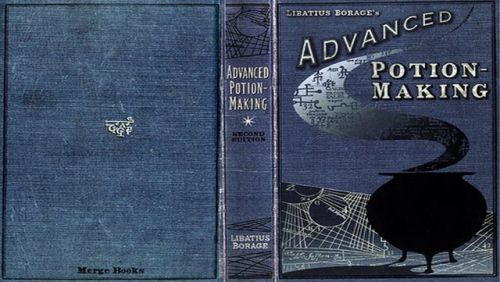239 posts
SnakeSheds MagicalUses
Snake Sheds Magical Uses

You could use the shedding of a snake a few ways, Both Good and bad. First, Think of why the snake sheds its skin. They do so, To allow for further growth and to remove parasites that may have attached to their old skin, And to allow the snake to fully grow.
Now a Witch would interpret this and use this energy to:
Banish unwanted entities
To heal
To bring growth, And change to a situation.
Think “Out with the Old, In with the new”
Snakes are also known to be very protective, Sly, And feared. So for these reasons A Witch would use the skin to bring:
Protection
Transformation
Strength
Jinxes
curses and crossings
In Hoodoo practices the skin of a snake can be used to bring good and bad things. On the light side it is used to bring luck, break crossings (hexes) wisdom, protection, and good fortune especially to Gamblers. And on the darker side it used to hex. To confuse an enemy, to harm them, or to bring rotten luck.
-
 transsexualredneck liked this · 1 month ago
transsexualredneck liked this · 1 month ago -
 mazuru7 reblogged this · 1 month ago
mazuru7 reblogged this · 1 month ago -
 mazuru7 liked this · 1 month ago
mazuru7 liked this · 1 month ago -
 kuntiqueen liked this · 2 months ago
kuntiqueen liked this · 2 months ago -
 dust-child reblogged this · 2 months ago
dust-child reblogged this · 2 months ago -
 agressivepoet liked this · 2 months ago
agressivepoet liked this · 2 months ago -
 wildravenfeathers liked this · 2 months ago
wildravenfeathers liked this · 2 months ago -
 whoismarsh liked this · 8 months ago
whoismarsh liked this · 8 months ago -
 z3nko-kitsune liked this · 1 year ago
z3nko-kitsune liked this · 1 year ago -
 cosplaygray liked this · 1 year ago
cosplaygray liked this · 1 year ago -
 dressedwithred-if liked this · 1 year ago
dressedwithred-if liked this · 1 year ago -
 og-in-a-bog liked this · 1 year ago
og-in-a-bog liked this · 1 year ago -
 oatmilkyway09 liked this · 1 year ago
oatmilkyway09 liked this · 1 year ago -
 astreiadevenus liked this · 1 year ago
astreiadevenus liked this · 1 year ago -
 lunawillow03 liked this · 1 year ago
lunawillow03 liked this · 1 year ago -
 dark-flower1773 reblogged this · 1 year ago
dark-flower1773 reblogged this · 1 year ago -
 dark-flower1773 liked this · 1 year ago
dark-flower1773 liked this · 1 year ago -
 ragingbisexual945 liked this · 1 year ago
ragingbisexual945 liked this · 1 year ago -
 nolongeraclosetwitch liked this · 2 years ago
nolongeraclosetwitch liked this · 2 years ago -
 alrightyalmightyaphrodite liked this · 2 years ago
alrightyalmightyaphrodite liked this · 2 years ago -
 lilynde liked this · 2 years ago
lilynde liked this · 2 years ago -
 sugar-bunnyy liked this · 2 years ago
sugar-bunnyy liked this · 2 years ago -
 cantva190 liked this · 2 years ago
cantva190 liked this · 2 years ago -
 madmcneal reblogged this · 2 years ago
madmcneal reblogged this · 2 years ago -
 madmcneal liked this · 2 years ago
madmcneal liked this · 2 years ago -
 nunu919 liked this · 2 years ago
nunu919 liked this · 2 years ago -
 nunu919 reblogged this · 2 years ago
nunu919 reblogged this · 2 years ago -
 sunflowersurpentine reblogged this · 2 years ago
sunflowersurpentine reblogged this · 2 years ago -
 krckens liked this · 2 years ago
krckens liked this · 2 years ago -
 nerdsgaysandarcherybabes liked this · 2 years ago
nerdsgaysandarcherybabes liked this · 2 years ago -
 cosmina-miki reblogged this · 2 years ago
cosmina-miki reblogged this · 2 years ago -
 midwestwretchess reblogged this · 2 years ago
midwestwretchess reblogged this · 2 years ago -
 bigasssword liked this · 2 years ago
bigasssword liked this · 2 years ago -
 pennykeeper reblogged this · 2 years ago
pennykeeper reblogged this · 2 years ago -
 pennykeeper liked this · 2 years ago
pennykeeper liked this · 2 years ago -
 callkarl reblogged this · 2 years ago
callkarl reblogged this · 2 years ago -
 talkingtocrows reblogged this · 2 years ago
talkingtocrows reblogged this · 2 years ago -
 why-l-so-l-serious liked this · 2 years ago
why-l-so-l-serious liked this · 2 years ago -
 bluebellcastiel liked this · 2 years ago
bluebellcastiel liked this · 2 years ago -
 misticrainwitch liked this · 2 years ago
misticrainwitch liked this · 2 years ago -
 lies418 liked this · 2 years ago
lies418 liked this · 2 years ago -
 xxjustrebloggingxx reblogged this · 2 years ago
xxjustrebloggingxx reblogged this · 2 years ago -
 xxjustrebloggingxx liked this · 2 years ago
xxjustrebloggingxx liked this · 2 years ago -
 ihavehornydumbassdisease liked this · 2 years ago
ihavehornydumbassdisease liked this · 2 years ago -
 awriterandimaginativedaydreamer liked this · 2 years ago
awriterandimaginativedaydreamer liked this · 2 years ago -
 witchcab reblogged this · 2 years ago
witchcab reblogged this · 2 years ago -
 witchcab liked this · 2 years ago
witchcab liked this · 2 years ago
More Posts from Grimoire-of-lamb



Eight Forms of Creating Potions
Yes, this is from a Hogwarts text, however, the information contained therein is accurate and relevant and certainly worth sharing on this blog, if only to fully expand upon the type of material I hope to cover here.
Infusions
An infusion is a form of water based potion, similar to a tea, and best suited for immediate ingestion of delicate ingredients such leaves or petals. To make a magical infusion: pour boiling water over your ingredients in goblet and leave to infuse for 5-10 minutes, stirring frequently. Strain before drinking if necessary. The leaves in an infusion need to steep longer than your average herbal tea, to allow enough time to release their phytochemicals, which are the active ingredients of the potion.
Decoctions
A decoction is another water based potion designed for immediate ingestion. However, it is a more concentrated brew than an infusion and is usually reserved for tougher ingredients such as roots or bark – where prolonged stewing is needed to release the phytochemicals. A decoction can also be reduced, which is to say, it can be made more concentrated by prolonged simmering which evaporates the water. To make a decoction: simmer your ingredients in water in a cauldron over low heat for 10-30 minutes; then strain. Reduce if necessary with further simmering over a low heat.
Tinctures
A tincture is an alcohol based potion. It fulfills the same function as an infusion or decoction but with the added advantage that it will keep for up to a year. A tincture is suitable for both delicate leaves and tougher materials such as bark as the alcohol releases the chemicals very effectively and in a similar way to the prolonged simmering of a decoction. To make a tincture: steep your ingredients in vodka or another spirit for a week. This allows time for the alcohol to release the active elements in your plant materials. After a week, strain off the liquid into a vial and store for up to a year. Administer sparingly, a tablespoon at a time.
Vinegars
A vinegar fulfils the same purpose as a tincture except that vinegar is used instead of alcohol. Prepare your vinegar in the same manner as a tincture and store for up to a year. A vinegar is useful in the case of alcohol intolerance or where the herb used is particularly bitter as the vinegar will mask it to a great extent.
Syrups
A syrup is the most palatable form of potion. Here magical ingredients are preserved in a sugar solution. A syrup is another potion that will keep for up to a year. It is best suited for occasional use at it is very sweet and could cause tooth decay if taken regularly. A syrup can be taken by the spoonful or alternatively diluter in water in a similar manner to a fruit squash. To make a syrup: first make an infusion or decoction of your ingredients and reduce if necessary. Strain and add sugar to the potion, stirring frequently, until the brew won’t dissolve any more sugar and resembles a syrup. Store in an airtight bottle in a cool, dark place.
Poultices
A poultice is a wad of chopped plant material that is held in place directly over a wound by a bandage. To prepare a poultice: chop your fresh herb and apply directly to a wound or infection. Hold in place over the wound with a bandage. If using chopped dried herbs rehydrate them with some water first. If the herb is tough and hard to handle, try adding some vinegar diluter in water to your poultice.
Fomentations
Fomentations or compresses are cloths that have been dipped in an herbal solution – such as an infusion, decoction, or a tincture – and then are applied to a wound. To prepare a fomentation: first create the required infusion, decoction, or tincture. Then dip your cloth into the liquid, quite liberally, and apply. It is important to use a very clean cloth to prevent the spread of infection.
Salves
A salve is very similar to a lotion or a cream. Magical ingredients are mixed in base of oils or fats for external application to the skin.
Tea Time
x x x x
Valerian
Valerian root is well known for its sedative properties and is often taken to promote good sleep. However, it can also ease tension, both physical and emotional. Too much can make you lethargic. It should not be used by kids under 12 years of age. Blue vervain
Another herb associated with easing sleep troubles and calming the nervous system is blue vervain. Research has shown that it can be effective against certain nervous conditions, but it should not used used for long periods of time. Catnip
If you have cats, try stealing their catnip. Cats rarely seem stressed or nervous, perhaps because the herb fights symptoms of anxiety. It can also reduce muscle tension while providing mild stimulation. If your troubles are making it difficult to fall asleep, try catnip in a tea before bedtime. It could also help if your lack of sleep is giving you headaches. Even people with severe anxiety may benefit. Chamomile
Many people reach for chamomile tea to relax. It helps soothe the stomach and decrease mild anxiety. It is one of the herbal remedies that can be given to children, though it is not recommended for prolonged use in anyone. Chamomile and catnip could both stimulate an appetite lost due to stress. In addition to a cup of tea, people can add chamomile to a warm bath for increased relaxation. Lemon balm
Anything with the name “balm” should be soothing, and lemon balm is no exception. Lemon balm acts on the nervous system to make you feel less nervous, anxious or upset. Generally taken in a tea, lemon balm may also reduce headaches. Let it steep up to 15 minutes and use it in a hot or iced tea. Kava
Kava is arguably the best herb for treating moderate to severe anxiety. Many studies have shown its effectiveness for anxiety and stress. Some herbal remedies ease the symptoms of anxiety, but kava might actually reduce anxious thoughts. There are some concerns about the safety of kava, so even though a cup of kava tea probably won’t hurt you, talk to a doctor anyway. Passionflower
People with moderate anxiety who want the benefits of kava without the possible risks can try passionflower tea. Passionflower might help with severe anxiety, but it is recommended for people with a mild to moderate condition. This herb is known to decrease muscle tension and calm nerves. It could also help with headaches and sleep difficulties. Hops
Although a main ingredient in beer, hops are also used in tea and may soothe nervousness and stress. It could also fight insomnia, indigestion and headaches. If your stress level has weakened your immune system and you end up with a fever, hops could also help that too. Green tea
Besides its high antioxidant content, green tea could help you relax because it contains theanine. Research shows that this amino acid promotes alpha waves in the brain, which are linked to relaxation. Green tea does have caffeine though, so if you’re looking to calm down, you may want to try the decaffeinated kind.

Actions in Witchcraft
Just like each herb and crystal has certain properties and strength, so do actions taken during rituals and spells. When writing spells it is important to include the proper actions to make sure your spell is as effective as possible.
Burning - Burning an object is a common practice in spells and rituals. Fire is considered a cleansing and activating force.
If you want to destroy something’s influence, burn it and dispose of the ashes away from your home.
If you want to set something into motion, burn objects related to the situation to ash.
If you want to activate certain energies, burn objects related to those involved.
If you are performing a curse or hex, burn the object in the flame of a candle.
Burying/Abandoning - A Witch might bury and object for many reasons. They might want to put something to rest, perform a slow spell, or banish something. There are different ways in which one can bury an object to accomplish a desired outcome:
If you want to keep something close, bury the object in your back yard.
If you want to attract something, bury the object under the front door step
If you want to disperse something to a distance, throw the object into a crossroads
If you want to fix an influence, inter the object in a five-spot pattern
If you want something to work by means of spirits, bury the object in a graveyard (but don’t disrupt those buried there!)
If you want to hide something’s point of origin, conceal the object in a tree
If you want something/someone to work by stealth, hide the object in clothing or on objects
If you want an influence to begin or strengthen, throw the object East
If you want an influence to end or weaken, throw the object West
Rubbing - Rubbing an object can be the easiest and most immediate way to experience witchcraft. Transferring and garnering energy from objects can be done through physical contact with an object.
If you want to put energy into an object, rub it with your left hand
If you want to gather energy from an object, rub it with your right hand
If you want to bring positivity, rub clockwise
If you want to bring negativity, rub counter clockwise
If you want to use crystals to heal, rub the appropriate stone on the effected part of the body.
Soaking - Water is one of the main elements used in witchcraft. It comes in many forms with many different properties and uses.
If you want something to move away and sink, throw it in running water
If you want something’s influence to rise and fall cyclically, float it in a tidal estuary
If you want to protect or cleanse something, soak an object in rain water
If you are focused on your personal goals, soak your object in sea water
If you want to bring about transformation, soak your object in snow/melted snow
If you’re trying to make a wish come true, soak your object in well water
If you want to banish, soak your object in harbor water
~Good Essential Oil Combinations~
Bergamont, Neroli, Sandalwood
Lavender, Orange, Eucalyptus
Frankincense, Lemon
Grapefruit, Lemongrass
Lavender, Sage, Chamomile, Lemon
Patchouli, Orange
Peppermint, Orange, Lavender
Lemon, Tea Tree
Carot seed, Rosehip, Geranium
Lavender, Geranium, Sage
Lemon, Orange, Tea Tree, Eucalyptus, Sandalwood
Peppermint, spearmint, lavender, chamomile
For specific uses:
Relaxation: Orange, Peppermint, Basil, Lavender, Patchouli, Chamomile
Protection: Orange, Lemon, Lavender, Tea Tree, Thyme
Banishing negativity: Lavender, Chamomile, Neroli
Preventing panic: Rose flower, Orange flower
Mood boost: Peppermint, Lemon, Orange
Sleep: Hops, Lavender, Yarrrow, Chamomile
Skin care: Apricot, Argan, Avocado, Grapeseed, Macadamia, Rosehip, Sesame, Almond